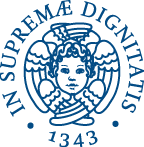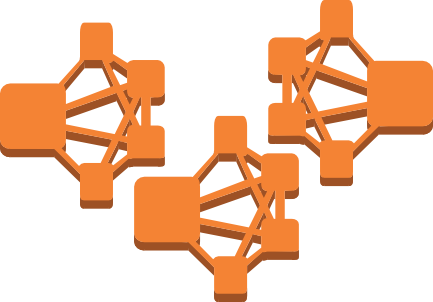Information on the other part of the course is available on the
maintained by G. Lettieri.
The course is aimed at providing students with a comprehensive
vision of the foundations of concurrent and distributed
programming. The main focus of the lectures is on system
models and on different types of frameworks intended to
support the development of concurrent systems at different
abstraction levels and on different underlying platforms.
Students will acquire the basic skills to participate in the
design, implementation and integration of concurrent and
distributed software systems, possibly made of heterogeneous
components.
Prerequisites: knowledge of Operating Systems basics, and
mastering of Java and C/C++.
-
ATTENTION:
An extra oral exam is scheduled on
Dec. 3rd, 2020 h. 8:30 am, to be held online on the MS Teams
platform. No sign-in is
required: please confirm participation to the teacher by email.
-
The dates for oral exams are reported on the
website of the School
of Engineering.
Students are required to
register through the Exam
Sign-in Portal at least two days before the exam
date.
First lecture on Wed. Sept. 26th, 2018
Mon. 11:30-13:30
ADII 2 (usually, Bechini); Tue. 14:30-16:30 ADII 1
(usually, Bechini); Wed. 8:30-10:30 ADII 1 (usually,
Bechini); Thu. 13:30-15:30 ADII 2 (usually, Lettieri)
The lectures' schedule and relative updates, as well as
exam dates, are available on a public Google
Cal, which can be imported with the following ICS
address:
https://www.google.com/calendar/ical/orl95i8nga1ar07d2g9fmedvg4%40group.calendar.google.com/public/basic.ics
A detailed description is available via the record of
lessons (see the left menu item).
Hereafter, a cathegorized list of topics can be
interactively explored.
 Introduction
Introduction
 Notion of concurrency
Notion of concurrency
 Partial and total ordering of activities
Partial and total ordering of activities
 Processes and threads
Processes and threads

 Thread pooling and Executors for Java tasks
Thread pooling and Executors for Java tasks

 Use of Future objects with ExecutorService
Use of Future objects with ExecutorService
 Speedup of a parallelized application: Amdhal's law, Gustafson's law
Speedup of a parallelized application: Amdhal's law, Gustafson's law
 Models and paradigms: Shared memory vs. message passing
Models and paradigms: Shared memory vs. message passing Shared memory model
Shared memory model
 Mutual exclusion
Mutual exclusion

 Classes of critical sections
Classes of critical sections

 Naif software approaches, Peterson's solutions
Naif software approaches, Peterson's solutions

 The Lock concept and object-oriented idioms
The Lock concept and object-oriented idioms

 Hardware support by Test-And-Set, Compare-And-Swap, Fetch-And-Add
Hardware support by Test-And-Set, Compare-And-Swap, Fetch-And-Add
 Synchronization/communication
Synchronization/communication


 Avoidance of busy-waiting and starvation, 'sleeping' locks
Avoidance of busy-waiting and starvation, 'sleeping' locks

 Higher-level control: Condition variables (in Pthreads and Java)
Higher-level control: Condition variables (in Pthreads and Java)


 Rationale for the Construct
Rationale for the Construct


 Hoare's Monitor, semantics 'signal-and-urgent-wait', 'signal-and-wait', 'signal-and-return'
Hoare's Monitor, semantics 'signal-and-urgent-wait', 'signal-and-wait', 'signal-and-return'


 Mesa-style Monitor and Java Monitor; notifyAll()
Mesa-style Monitor and Java Monitor; notifyAll()


 Use of counting semaphores in Java
Use of counting semaphores in Java


 Models, and memory barriers
Models, and memory barriers


 The Java Memory Model based on happened-before
The Java Memory Model based on happened-before
 Typical synchronization problems
Typical synchronization problems

 Bounded buffer - Java BlockingQueue
Bounded buffer - Java BlockingQueue

 Readers and writers - Java ReadWriteLock
Readers and writers - Java ReadWriteLock


 Approaches to deadlock management, trylock
Approaches to deadlock management, trylock
 Non-blocking algorithms
Non-blocking algorithms

 Generalities, use of CAS, optimistic assumptions
Generalities, use of CAS, optimistic assumptions

 Michael and Scott's queue
Michael and Scott's queue
 Development of Java multithreaded applications
Development of Java multithreaded applications

 Synchronized/concurrent collections
Synchronized/concurrent collections

 Synchronizers (latches, etc.)
Synchronizers (latches, etc.)

 Unit testing, generalities on testing of concurrent Java programs
Unit testing, generalities on testing of concurrent Java programs Message-passing model
Message-passing model
 Models for distributed systems
Models for distributed systems
 Asynchronous and synchronous models
Asynchronous and synchronous models

 Process addressing and channels
Process addressing and channels

 Unblocking and blocking constructs
Unblocking and blocking constructs

 Bounded buffer problem in asynchronous model
Bounded buffer problem in asynchronous model
 The Actor model
The Actor model

 Relation to multithreaded and distributed applications
Relation to multithreaded and distributed applications

 Example: the Akka framework
Example: the Akka framework
 Precedence and causality
Precedence and causality

 Lamport's timestamps (partial/total order)
Lamport's timestamps (partial/total order)

 Vector timestamps, properties, consistent cuts
Vector timestamps, properties, consistent cuts

 Physical clock sychronization - concepts and algorithms
Physical clock sychronization - concepts and algorithms
 Distributed mutual exclusion
Distributed mutual exclusion

 Ricart-Agrawala algorithm, token ring solution
Ricart-Agrawala algorithm, token ring solution
 Dealing with faults
Dealing with faults

 Election: ring-based and bully algorithm
Election: ring-based and bully algorithm

 The Byzantine Generals problem
The Byzantine Generals problem


 Possibility of solution for N>=3f+1
Possibility of solution for N>=3f+1 Communication Frameworks and APIs
Communication Frameworks and APIs
 Low-level APIs
Low-level APIs


 Connectionless and connection-oriented communication
Connectionless and connection-oriented communication
 Direct and indirect communication
Direct and indirect communication

 RPC - Remote Procedure Call
RPC - Remote Procedure Call


 Request-reply protocols, idempotent operations
Request-reply protocols, idempotent operations


 RPC's Interfac Description Languages (IDLs)
RPC's Interfac Description Languages (IDLs)

 RMI - Remote Method Invocation
RMI - Remote Method Invocation


 Remote interfaces and remote references
Remote interfaces and remote references


 Architecture: servants and location services
Architecture: servants and location services


 Distributed garbage collection
Distributed garbage collection

 Message-oriented middleware
Message-oriented middleware


 Message queues and publish-subscribe systems
Message queues and publish-subscribe systems


 JMS - Java Message Service
JMS - Java Message Service


 SOAP-based Web Services and relative architecture/protocols
SOAP-based Web Services and relative architecture/protocols


 RESTful Web Services and REST resource management
RESTful Web Services and REST resource management Frameworks for applications' support
Frameworks for applications' support
 Basic patterns and architectures
Basic patterns and architectures

 Container pattern and interception
Container pattern and interception

 MVC - Model View Controller
MVC - Model View Controller
 Web applications
Web applications

 Architecture of a Web server
Architecture of a Web server

 State-aware computations and session management
State-aware computations and session management


 Lifecycle and service methods
Lifecycle and service methods


 Classes, configuration, and deployment
Classes, configuration, and deployment

 Deployment descriptors, convention over configuration
Deployment descriptors, convention over configuration
 Distributed components
Distributed components

 EJBs - Enterprise Java Beans
EJBs - Enterprise Java Beans


 Session EJBs: stateless and stateful
Session EJBs: stateless and stateful


 Management strategies and implementation
Management strategies and implementation


 EJB interfaces and lookup via JNDI
EJB interfaces and lookup via JNDI


 Context and Dependency Injection via annotations
Context and Dependency Injection via annotations
The final test is organized as follows:
a) development of a project; specifications must
be agreed upon with the teacher; the finalized work must be
shown to the teacher for final approval prior to the oral exam (not in
the same date)
b) oral exam (possibly with written exercises), on
all the topics covered by the course.
All the course contents are covered within the textbooks and
other material reported hereafter. These references can also
be taken as suggestions for in-depth discussions on class
topics.
Books:
|
 T1
-
Title Operating
System Concepts 9th ed.
T1
-
Title Operating
System Concepts 9th ed.
Authors Abraham Silberschatz, Peter B.
Galvin, Greg Gagne
Pub.
Wiley
ISBN
9781118093757
Notes:
A classical resource on OSs,
discussing
synchronization problems as well.
|
 T2
-
Title Distributed
Systems - Concepts and Design 5th ed.
T2
-
Title Distributed
Systems - Concepts and Design 5th ed.
Authors George Coulouris, Jean Dollimore,
Tim Kindberg, Gordon Blair
Pub.
Addison-Wesley
ISBN10
0132143011
Notes:
A comprehensive overview of
distributed systems,
addressing
both theoretical and architectural issues.
|
Classwork material:
Provided after each lab session.
- CW01 (data
races, ThreadLocal, AtomicInteger, Peterson)
- CW02
(bounded buffer with condition variables and
semaphores)
- CW03 (task
executors, thread pooling, futures)
- CW04 (periodic
task scheduler, benchmarking)
- CW05 (unit testing,
custom synchronizer)
- CW06 (multiple
projects - RMI example)
- CW07 (basic use of
Servlets)
- CW08 (multiple projects - stateless/stateful session EJBs)
- CW09 (JEE global project with JMS communication and Message-driven EJB)
- CW10 (Simple Maven project in NetBeans)
|
Misc:
S1/2/3/4 - Slides on related topics, available
on the web: Generics,
Nested
classes, JCF,
and
JUnit
S5 - Slides on Java
Executor Framework (from a course at the Univ.
of Birmingham)
W1 - Tutorial on Java
High Level Concurrency Objects (not all details
have been mentioned at lesson)
W2 -
Online paper
for those who want to delve into the "Double-checked locking" trick.
C1/2 - Java code for examples of non-blocking
synchronization: Treiber's
stack and Michael/Scott's
queue
W3 - Tutorial on MPI
(from Lawrence Livermore National Lab; here,
another nice one).
W4 - Online paper on issues in
Java benchmarking
W5 - Tutorial on Java
RMI (for "general" distributed objects: Java
IDL)
S6 - Slides (commercial-style presentation) on
Akka and the related Actor model.)
W6 - Tutorial on Java
EE - massive official document: only Servlets
(no asynch mode), EJBs, and JMS are in our syllabus
|
The following web references can be useful for practical
programming.
L1 -
NetBeans
IDE
L2 -
Eclipse
IDE
L3 -
Cheat
sheet for JCF
L4 -
MPI
home,
Open
MPI
L5 -
Akka
L6 - Maven
slides
and
site
The backgroung images for this page have been obtained
by reworking the "simple icons" for AWS
(http://aws.amazon.com/architecture/icons/).




